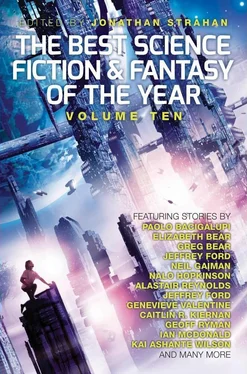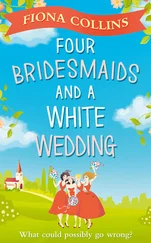No wait, excuse me for interrupting, there were no deaths. That was the hair follicle group. Thermoencephalitis, yes. It was a bad idea.
No, I’m not saying that no one with SunSkin tattoos ever died. I’m saying that no deaths suffered by those customers was proved to be caused by the tattoos. I refer you to that entire body of criminal and civil law.
Of course some of them did in fact die. No one ever claimed photosynthesis would make you immortal.
I do not speak for SunSkin, which in any case went bankrupt in the first year of the crash. My association is with my potential clients only.
After the crash, my ostensible clients formed a 501(c)(3) called End Hunger. They renounced the patent on their product, and indeed sued to have the patent revoked as improperly granted, the product being made entirely of open source biobricks.
No, the patent was not their idea in the first place. It was the idea of the lawyers hired by SunSkin. Amazing as it may seem.
Yes, the assemblage itself was my quasi-clients’ idea. Yes, the idea was new, and not obvious, which is how the patent law as written describes eligibility. But the parts were open source, and photosynthesis is a natural process. And my associates wanted their assemblage to remain open source. Actually all that quickly became a moot point. Once they published the recipe, and the knowledge spread that human photosynthesis worked, the injection method as such became what you might call generic. It turned out the cells were very robust. You could stick them in with a bone needle and they would do fine.
I don’t know how much money my semi-clients made.
Estimate? Say somewhere between nothing and a hundred million dollars.
I brought my toothbrush, as I said. Obviously my once and future clients made a living. I don’t think you can object to that. As you pointed out in Molecular versus Myriad , no one does anything except for money. Indeed you thought it was a great joke to imagine that people might work just for curiosity or recognition or the good of humanity. Curiosity, you said. That’s lovely, you said. Don’t you remember? You got a good laugh from the gallery, because you have no idea how scientists think or what motivates them. You actually seem to think it’s all about money.
Not since the crash it isn’t.
Yes, it does appear that large quantities of ATP entering the body by way of capillaries in the dermis causes some people to experience side effects. Hot flashes, hypersatiety, vitamin deficiencies, irritable bowel syndrome, some others. But you’ve made it clear in many cases that side effects cannot be allowed to stop the making of money. Your priorities there are very clear.
Well, I’m surprised to hear you describe the worst depression since the Black Death as a side effect. Especially the side effect of a new kind of tattoo.
Agreed, when you photosynthesize sunlight you will be less hungry. You might also spend more of your day outdoors in the sun, that’s right, and subsequently decide that you didn’t need quite as much food or heating as before. Or clothing. Or housing, that’s right. I don’t see all these green naked people wandering around sleeping under tarps in the park like you seem to, but granted, there have been some changes in consumption. Did changes in consumption cause the Great Crash? No one can say –
That means nothing. Your feeling is not an explanation. Historical causation is complex. Technology is just one strand in a braid. What you call the Great Crash others call the Jubilee. It’s been widely celebrated as such.
Yes, but those were odious debts, so people defaulted. Granted, maybe it was easier to do that because they weren’t in danger of starving. Maybe the rentier class had lost its stranglehold –
Not true. Most people think the crash resulted not from photosynthetic tattoos or the Big No but rather from another liquidity crisis and credit freeze, as in 2008. Possibly you’ve even heard people saying that the failure to regulate finance after 2008 was what led to the crash, and that the failure to regulate finance was a result of your decision in Citizens United and elsewhere. Possibly you’ve heard yourselves described as the cause of the crash, or even as the worst court in the history of the United States.
Sorry. This is what one hears when one is outside this room.
May I point out that I am not the one straying from the point. In the matter of this current hearing, which strikes me as a bit of a witch hunt to find culpability for the crash anywhere but at your own doorstep, I repeat that my clients never wanted the patent and renounce all claims to it. The patent was awarded to an LLC called SunSkin, which went bankrupt in the first year of the crash when its principal lender broke contract by refusing to pay a scheduled payment. Possibly the lawsuit against the lender will eventually be won, but as SunSkin no longer exists, it will be a bit of a Pyrrhic victory for them.
Well, as the lender was nationalized along with all the rest of the banks in the third year of the crash, if SunSkin’s lawsuit ever comes to you, you may have to recuse yourselves as being a party to the defendants. Not that that kind of conflict ever stopped you before.
I don’t know, can there be contempt of court if the court is beneath contempt?
I don’t care, I brought my toothbrush. I’ll be appealing this peremptory judgment at the next level.
Not true. There is most definitely a next level.
SIMON INGS(www.simonings.com) was born July 1965 in Horndean, Hampshire, England. He attended King’s College in London, where he studied English. His first SF story was “Blessed Fields”. Debut novel Hot Head and sequel Hotwire were cyberpunk, of sorts. Other works of SF include City of the Iron Fish and Headlong . Painkillers is a thriller with some SF elements, while The Weight of Numbers and Dead Water are big, ambitious literary works. He returned to SF with Wolves , about augmented reality. He also wrote non-fiction The Eye: A Natural History . Ings also edited Arc, the SF magazine produced by New Scientist , where he works as a culture editor.
THERE’S A RAIL link, obviously, connecting this liminal place to the coast at Whitstable, but the mayor and his entourage will arrive by boat. It’s more dramatic that way.
Representatives of the airfield construction crews are lined up to greet him. Engineers in hard hats and dayglo orange overalls. Local politicians too, of course. Even those who bitterly opposed this thing’s construction are here for its dedication. The place is a fact now, so they may as well bless it, and in their turn, be blessed.
It’s early morning, and bitterly cold. Still, the spring light, glinting off glossy black tarmac and the glass curtain walls of the terminal buildings, is magnificent.
I’m muscling some room for my nephews at the rail of the observation deck, and even up here it’s hard to see the sea. A critical press has made much of the defences required to protect this project from the Channel’s ever more frequent swells. But the engineering is not as chromed as special as it’s been made out to be: this business of reclaiming land from the sea and, where necessary, giving it back again (‘managed retreat’, they call it), is an old one. It’s practically a folk art round here, setting aside this project’s industrial scale.
The mayor’s barge is in view. It docks in seconds. None of that aching, foot-tap delay. This ship’s got jets in place of propellers and it slides into its decorated niche (Scots blue and English red and white) as neatly as if it were steered there by the hand of a giant child.
Читать дальше












